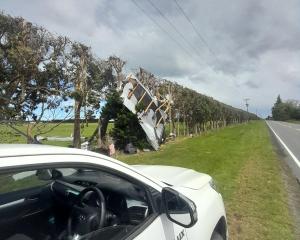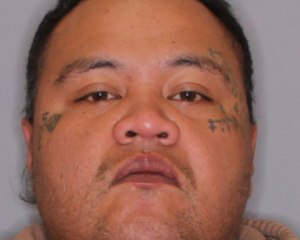
The experts also told OneRoof that buyers with moderately well-off families are sometimes putting their parents under pressure to stump up help they really can’t afford.
Max Rashbrooke, senior research fellow at the Victoria University of Wellington, says unlike in many other countries there is little research in New Zealand on generational wealth.
“We have a lack of data because we don’t have inheritance tax. But I think it’s pretty rare to buy a home without an inheritance or some kind of assistance from your parents,” he said.
That assistance isn’t always hard cold cash.
“So for instance, you often hear stories about 25-year-olds already owning three properties. Often it turns out that they saved up because they’re able to live rent-free with their parents and that’s equivalent to an inheritance. It’s delivered in the form of subsidy effectively,” said Rashbrooke.
Pushpa Wood, director of Massey University’s Financial Education and Research Centre, doesn’t believe New Zealand has reached the point where home-ownership is impossible without parental involvement but does note that pressure to provide financial help can cause strife for the older generation.
In the past money typically passed from parents to adult children after the parents had died, but “now parents and grandparents are transferring the wealth and the assets in their lifetime”.
Said Wood: “It’s becoming more important because what our younger generation wants to achieve with homeownership is beyond their reach. Parents and grandparents are thinking: ‘Can I use my wealth to help my child or my grandchild into home-ownership?’”
She said it is only natural for parents to want to help, whether that’s in the form of contributing cash to the deposit or providing a larger lump sum to reduce interest payments on the mortgage.
But that can have a darker side.
“There are unspoken social pressures and moral obligations we as parents feel if our child is financially struggling. Parents are feeling that pressure,” she says.
“The more homeownership becomes beyond (younger people’s) reach, the more the trend will continue, that the parents and grandparents will be expected to transfer the wealth to their children.”
The pressure manifests in different ways, said Wood. One example is empty nest syndrome. That’s where the children are expecting parents to downsize to a smaller house to free up capital to hand over to the children or grandchildren.
Where parents might be making a mistake when passing money over to the next generation is assuming they’re not going to need that money. At age 55, 60 or 65, they may not understand their future needs.
“I see the other side of things where the parents have given everything to their children to help them out, and then they’ve got nowhere to go. Financial abuse of parents is happening more and more.”
Rashbrooke said parents shouldn’t have to help their children with massive financial grants, though.
“People are always going to help their kids and that’s natural. But people shouldn’t be having to pour vast sums of money into their children’s futures.
“A lot of parents feel under pressure to stump up quite a lot of money for their children’s tertiary education.
“Then because we have such a dysfunctional housing market, they also feel under a lot of pressure to help their children into housing, even in some cases where they can probably ill afford to do so.
“They probably need that money for themselves because they need to be saving up for their own retirement. That’s partly because things like private pensions, which used to provide a lot of economic security for people have been wound back by companies. New Zealand superannuation, although pretty good compared to international alternatives, doesn’t tend to provide everything that people need in retirement.”
Rashbrooke said the clash of generations narrative that boomers have wrecked everything for millennials isn’t helpful.
“The fact is there are rich boomers and poor boomers, and there are some very rich millennials already. Inequality within each generation is huge.”
Data being collected currently by Stats NZ for the Household Economic Survey will give a more definitive picture of gifts and inheritances when it’s published in 2025, said Rashbrooke.
“I will put my money on it showing exactly the same thing that every international dataset shows, which is that people who receive inheritances are already disproportionately well off compared to their peers. The story is inheritance is mostly better off parents giving to already better off children.”
Across the Tasman, research in Australia by economists Rachel Ong ViforJ and Christopher Phelps looked at the role of parental assistance in the move from non-homeownership to home ownership.
Using Household, Income and Labor Dynamics in Australia (HILDA) Survey data, they estimated that those who receive a cash transfer or inheritance in excess of $5000 from the bank of mum and dad are more than twice as likely to enter into home ownership than those who do not receive assistance.
Parents were also helping in non-cash ways, Ong ViforJ and Phelps found, with 13.4 per cent co-residing with parents and 4.5 per cent living rent-free in homes provided by family or friends. Such in-kind transfers to first home buyers played a critical role in helping them into the market, Ong ViforJ and Phelps found.
They noted that living with higher socio-economic parents was more beneficial than living in a lower economic home.
By Diana Clement













